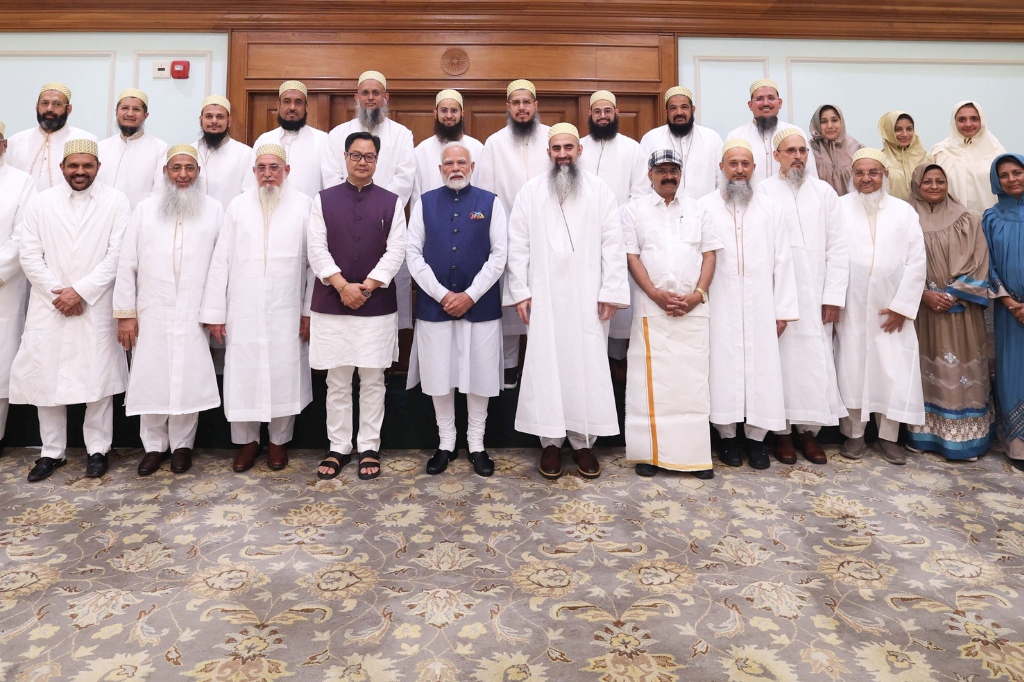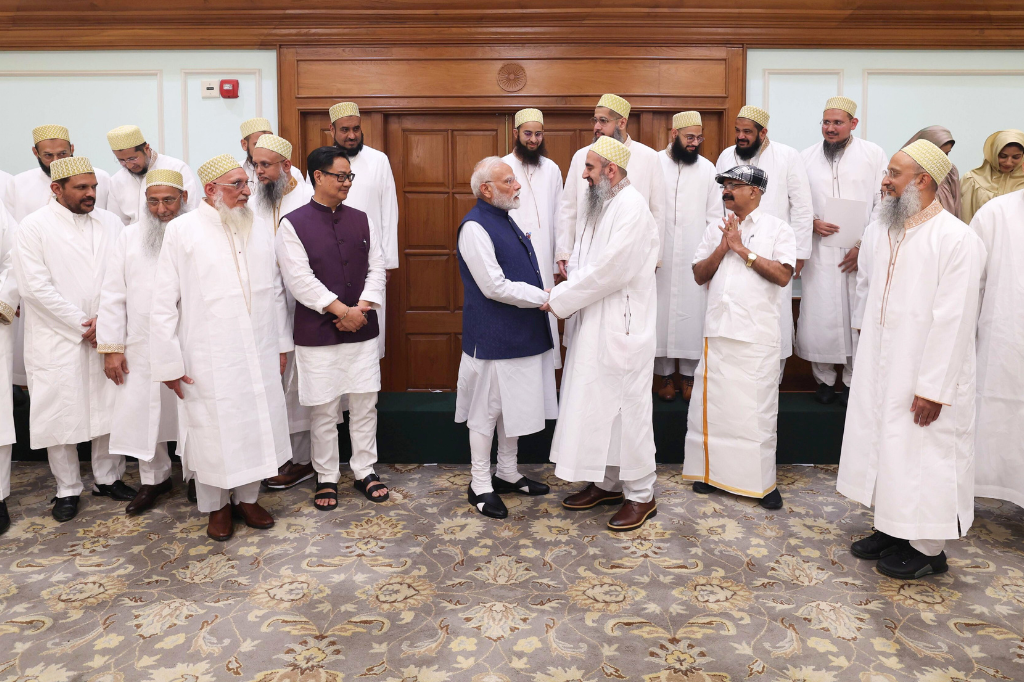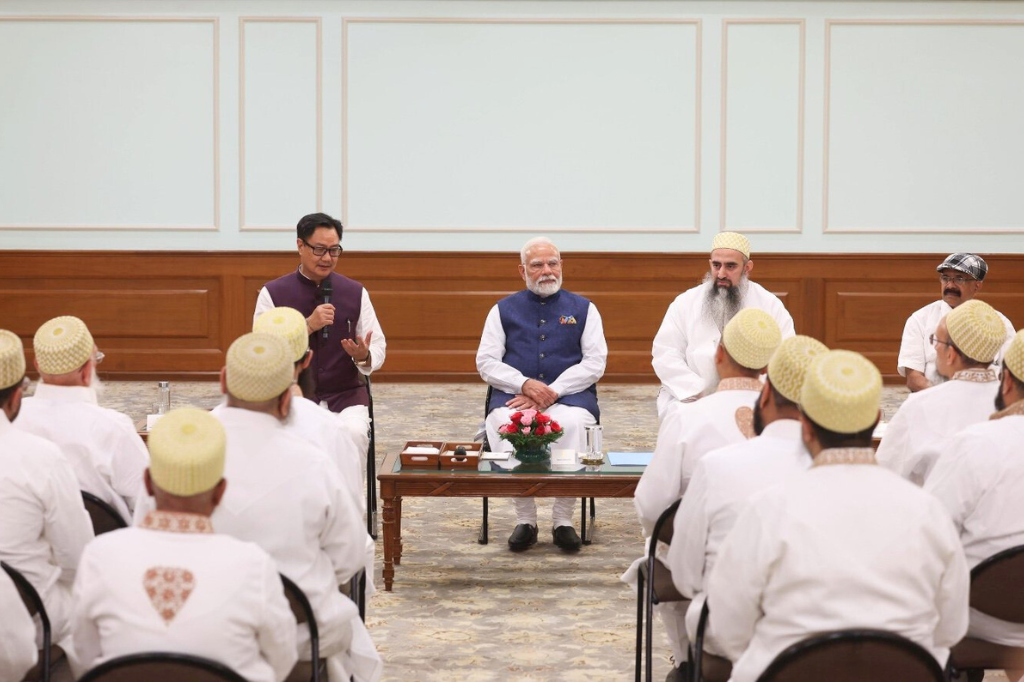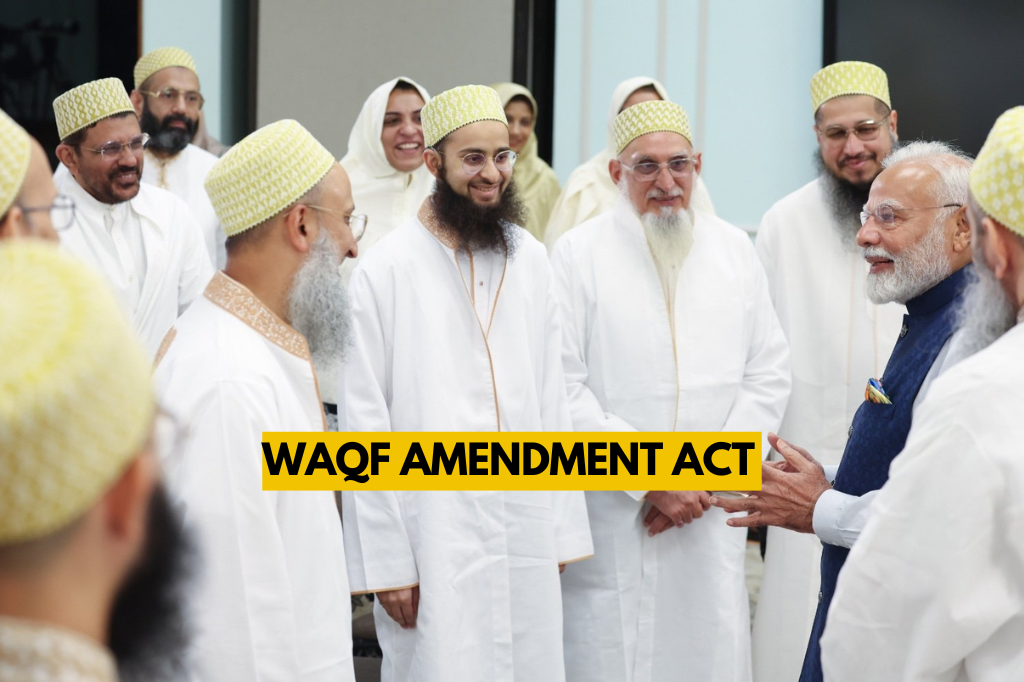PM Narendra Modi, while interacting with a delegation of the Dawoodi Bohra community at his residence on Thursday, clarified that the Waqf (Amendment) Bill was not formulated overnight but was the result of over five years of thorough discussion and consultation.
Modi emphasized that the purpose of the Waqf Amendment Act is to empower the underprivileged and protect the rights of women – particularly Muslim widows – who have long faced injustices. “Many families had raised concerns about their properties being arbitrarily designated as waqf. Our mission is to support such people and ensure justice, especially for women,” the Prime Minister said.

He further shared that Dawoodi Bohra spiritual leader Syedna Mufaddal Saifuddin was the first individual he consulted while drafting the bill. Modi noted that over 1,700 complaints had been received in 2019 from members of the Muslim community – mostly women – seeking redress. “That’s when I decided to delve deeper into the issue. This legislation is the outcome of a five-year-long exploration of the various aspects of waqf,” he said.
The Waqf Amendment Bill was passed during the recent Budget session of Parliament and has received presidential assent. However, the law is currently facing legal scrutiny in the Supreme Court. The government has assured the Court that three contentious provisions of the bill will not be enforced for the time being.

During the interaction, community members expressed appreciation for the Prime Minister’s attention to the Dawoodi Bohras, describing themselves as a “minority within a minority.” Officials noted that the community had long requested exemption from the new waqf law – a demand the government has now fulfilled by allowing them to remain outside its jurisdiction.
Minority Affairs Minister Kiren Rijiju was also present at the meeting. One community member shared an example involving a property purchased in 2015 for a redevelopment project in Bhendi Bazaar, Mumbai, which was later contested in 2019 as waqf land by someone from Nasik. They credited the Prime Minister for taking steps to prevent such disputes under the amended law.
The community reaffirmed their trust in Modi’s leadership and his guiding principle of Sabka Saath, Sabka Vikas, Sabka Vishwas (Together with all, Development for all, Trust of all).








